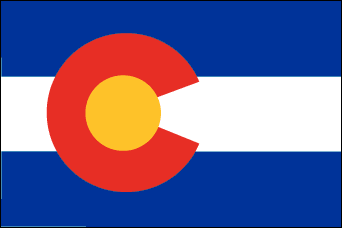COMMERCE CITY — Shoco Oil, a leading independent petroleum distribution company in Colorado, has opened the Denver area's first retail biodiesel fueling station to service trucking fleets, school districts and diesel vehicle owners.
The supplier, Blue Sun Biodiesel, is developing regional farmer cooperatives to produce biodiesel feedstock from crops adapted to arid high plains growing conditions. "Planted in rotation with winter wheat, oil-seed crops from biodiesel can provide additional revenue for local farmers and keep energy dollars here in our local communities," said CEO Jeff Probst.

Shoco Oil is a third-generation operated company. Co-owner Becky Hohnstein said she believes vegetable oil-based fuel is "the way of the future" because it will reduce dependence on foreign oil, support the local economy and help preserve the environment. She said more than two million gallons of diesel fuel are burned in Colorado every day.
Shoco Oil sits on 12 acres strategically located in the Denver Metro area. It sells gasoline, on- and off-road diesel fuel and lubricants. In addition, the company partners with ChevronTexaco to distribute Texaco products and services in Colorado.
DENVER — Voters in Colorado have rejected a proposal heavily supported by the carwash industry that would have provided $2 billion for funding of new water projects.
Referendum A would have allowed the state to issue up to $2 billion in bond debt. A $4 billion expenditure might be needed to pay off the loan, according to detractors. The program would have been run by the Colorado Water Conservation Board with Governor Bill Owens selecting the projects.
Owens was a strong supporter of the referendum as was the Rocky Mountain Car Wash Association, which staged a rally to showcase its support. "We need to protect Colorado's water" said Association Chairman Doug Christ.
Critics contended the measure would have provided a blank check for damaging mountain watersheds and fueling runaway growth.
DURANGO — British Petroleum Co. is a leader in providing alternative energy, a company spokesman told a gathering of La Palta county businessmen here recently.
Speaking to the Green Business Roundtable luncheon at the Strater Hotel, Dan Larson, BP's director of public affairs, noted the company has solar, wind and hydrogen projects throughout the world and is trying to reduce harmful elements in conventional fuel. In 1996 BP set a goal of cutting greenhouse gas at its facilities by 10 percent by 2010. The goal was reached nine years ahead of time in 2001.
To reduce greenhouse gas, BP is producing low-sulfur and ultra-low sulfur diesel for trucks and bus fleets. Solar panels on canopies of BP, Arco and Amoco gasoline stations reduce the electricity needed for the outlets by 15 percent.
"BP is the largest private user of solar energy in the United States," Larson said.
BP also is researching the future of hydrogen, he said, although its use in automobiles will not replace conventional fuels for nearly half a century, according to predictions. As a company, Larson said BP is "going in the right direction."
COLORADO SPRINGS — When the marketers of Accelerade hired a marathon runner to jog from 7-Eleven to 7-Eleven in Colorado to promote the new sports drink, they never dreamed he wouldn't stand out enough to draw attention.
After all, veteran runner Jerry Dunn was clad in tight clothes covered with Accelerade logos. But as he passed out samples of the product at a 7-Eleven on Union Boulevard, he noted, "On my way over here I passed, like, three guys who were basically wearing the same thing." Apparently lots of fitness proponents here wear logos on their togs so few passing by noticed Dunn.
Colorado was selected as a test market for Accelerade because Mens' magazine rated the city one of the fittest in the country in 2002. 7-Eleven is the sole retailer of Accelerade.
To raise awareness for the drink Dunn has been running 26.2 miles a day for 20 days in cities on the Front Range of Colorado. He mainly runs these days to promote products, but he's sweating a little more than usual on this project.
DENVER — An idea to increase the gas tax in the Denver metro area by three cents is drawing fire from many quarters.
Mayor John Hickenlooper suggested the tax increase as a way of helping fund the special highway projects that would be required if a measure passes setting up a multi-billion-dollar network of rails and bus routes.
That network, called FasTracks, would bring an extra 0.4 percent sales tax increase to pay for the mass transit projects. A vote on the measure is expected to take place in November 2004.
If residents were asked to pay an additional three cents per gallon for gasoline to fund the infrastructure, they likely would reject both, the Rocky Mountain News predicted.
The News pointed out the increase also would cause a bookkeeping problem for distributors of gasoline as they, not retailers, would be responsible for handling the tax and would have to have a separate account for the Denver metro area.
Also, the paper said gasoline buyers likely would head out of the area to gas up and metro gasoline station owners don't like that idea.
The Colorado state tax is now 22 cents per gallon.
COLORADO SPRINGS — Motorists don't have to go anywhere in this city to learn where to buy gasoline at the lowest or highest price.
The Gazette, the city's daily newspaper, prints a list every Saturday of a range of prices. The lowest price one Saturday in early November was at a 7-Eleven/Citgo station east of downtown. Regular unleaded sold there for $1.419 a gallon. The highest price was, of course, in the area of the Broadmoor Resort where a Conoco station sold regular unleaded for $1.56 a gallon.
Originally published in the December 2003 issue of the O&A Marketing News.
Copyright 2003 by KAL Publications Inc.
Serving the 13 Western States, the World's Largest Gasoline, Oil, Fuel, TBA and Automotive Service Market